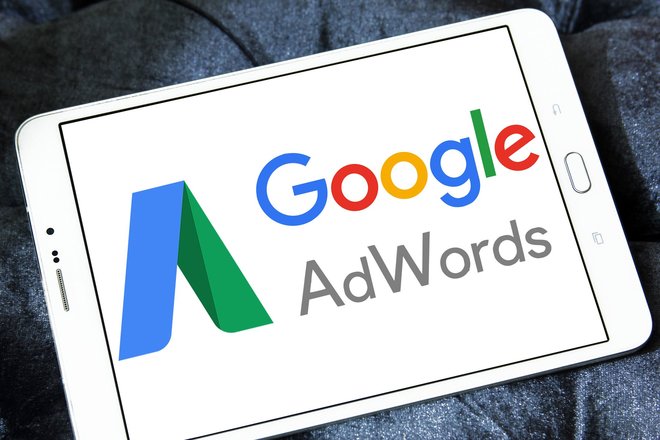Almost a year ago, I wrote that Chrome will soon block several types of ads, purely for the sake of its users, naturally. The ad blocker has recently been enabled and the feedback is as divided as was to be expected. Because what Google initially announced with the promise of salvation can also be considered an attack on their rivals in the ad industry. As reasonable as it is to rid the Internet of the most annoying ads, one fear remains and that is the notion that, from now on, the fox will be guarding the henhouse. Read on to learn more about Google's plans and the types of ads that will soon disappear forever.

What happened? The Coalition for Better Ads (CfBA), a conglomerate of market giants like Google, Microsoft, Facebook, big publishers and advertisers are seeking to ban annoying ads from the Internet - not out of their love for humanity but prompted by the current chaotic state of the online advertising business. Ads have become a constant nuisance, customers are enervated and ad blockers are flourishing. Even browsers like Opera and Safari now feature built-in ad blocking technology along with major anti virus solutions. Consequently, some sites now exclude visitors that use ad blockers, stoking the debate even further. The Coalition for Better Ads was founded to put a stop to these skirmishes.
To achieve their goal, data had to be collected on various annoying ads - this was done by Google, naturally. And even if you tried not to portray the CfBA as Google's executive body, it would still be easy to see who's calling the shots. The data, the methodology, the evaluation criteria - all contributed by Google even though they went to the trouble of having themselves erased as the source from the press material. The list of blocked content is vast: classic pop-up ads, autoplay videos with sound, any site with a 30% plus ad density, ads with countdowns ("the video will start in 10 seconds"), full-screen ads, sticky ads (stick to edges during scrolling), Flash-based ads, animated ads on mobile devices and many other types - all taboo from now on. I think we can all agree that these ads are indeed a nuisance.
 Still allowed: moderate non-invasive advertising
Still allowed: moderate non-invasive advertising
To avoid repeated individual site checks, companies can pay to have their sites whitelisted and to be fair, many ad blockers operate in the same way! For a minor fee, your site will be exempt from ad blocking. The CfBA has strict requirements: sites have to undergo a "clean" certification process and their owners must vow to play by the rules or else they'll be given a notice from Google and 30 days to make the necessary changes. Failure to comply will result in all ads being blocked on the affected pages in Chrome - essentially turning them into a money-losing business. And companies may now think twice before excluding users of other ad-blockers from their sites for fear of Google's wrath. 40% of site owners have already preemptively toned down their ads to avoid sanctions.
The Coalition for Better Ads is hoping fewer users will resort to third-party ad-blockers in the future. Their theory is less annoying ads will result in less blocking, happy users and a healthier advertising landscape. There are already rumors that ad-blocking plugins could eventually disappear from the Chrome webstore - and since Google also owns Android, the Play Store may face a similar fate. We will see. Aside from speculations, there's also substantial criticism: how can a company that derives the lion's share of its profits from ads appoint itself the guardian of the ad business? Why were those horrible YouTube ads exempt from the rules? How will this affect Google's own business?

It's hard to predict the future but it's safe to say the new rules likely won't harm Google. Google has no need for loud and flashy visuals and why would they when they have the world's largest data collection at their disposal. With a multitude of portals and tracking cookies, Google has everything they need to create individually tailored ads that match the interests of their viewers - it's brains (smart algorithms) over brawn (visual eye candy). In the future, advertisers will have to think twice to forgo themselves the luxury of Google's data-driven services. The not so subtle shotgun marketing approach (unfocused ads for the masses) may simply become unprofitable and die out.
Similar to the "certificate war", Google once again take it upon themselves to shape the Internet landscape to their own ideals - disguised as a struggle for the public good. And while Internet users may reap some benefits from this development, I can't help but think this is mainly about a landlord reining in their tenants. In the absence of a single owner, freedom and self-regulation have always been a major strength of the Internet without the need for a custodian. Besides and despite all seemingly noble intentions, it is hard not to see the clash of interests here. What do you think? Is Google abusing their market power or rightfully effecting positive change?




Sven I did a test to see what everyone is talking about regarding ads. Using a plain no-add-on browser I went looking at some of my fab websites. Several ran non-obtrusive ads. On the others it was pointless staying on the website. There was very little difference between the ads and the content. Many of the ads were in fact very gross. Perhaps a few of the corporations are concerned too.
When a company puts a lot of effort into developing an advertisement it plans to interact with the users/reader. That is the essence of advertising. It's time for those who create the gross ads to clean up their act or be removed.
I agree that on-screen ads can be a mild annoyance. But I think we mustn't lose sight of the fact that the internet, and much of its content, is free. And who pays for it? Those ads!
We are surrounded by ads in every walk of life - huge areas of our newspaper and magazine pages are covered in ads, commercial TV shows ads every 15 - 20 minutes, buildings are covered with hoardings, shop windows thrust posters in your face... and so on. And yet we don't seem to mind too much about these media. We have a kind of built-in filter that allows our brains to largely ignore the ads that don't interest us.
So why do we get so heated about internet advertising?
I don't really care how good the add is I don't want to watch it. If I can I delete them without even looking at them. I have used different add blockers but they don't work. If your watching a free download and there are add about every 5 minute you cant get around without having to watch it, it goes for 30 seconds there is no way of getting around it. Add make money for Google, Microsoft etc. so I don't see us being without them because money is the goal and how much is the end score :)
Hi Sven,
You may be interested in this article which I read via Mozilla Firefox.
https://www.nytimes.com/2016/10/31/business/media/publishers-rethink-outbrain-taboola-ads.html
*More information from another area.
Thanks Sven,
Good, bad or indifferent; what will be the outcome. Money and greed must be the root of bombarding the general population with ads and 'free-to-air' TV shows. The worst part of all is because all adverising is supposed to catch the attention of the 'watchers', but the ads are full of, and based on lies and deceit. which leads to the popular belief that ads are created by people who are not of the real world because do they, the creators, honestly believe that people will be 'sucked in' by the repetitious, monotonous, ridiculous, abnormal activities of meercats, dogs, cats, fish and humans acting on 'centre stage' in various ways outside 'the norm'.
I do not trust or respect the Google, Facebook, or any other organisation management teams who continue to bombard the general public with ads by using every means possible which does nothing more than support their own pockets and egos.
Block and eliminate all ads...who gives a damn? They are just a plague on the brain.
Sounds like its the inmates running the asylum again. Google have virtually taken over control of the internet by default and we in our ignorance have in many ways allowed it to happen. Google have in the past destroyed many entrepreneurs lives by applying new rules with no thoughts for anyone except themselves and this looks just like yet another crafty move to edge out the competition.